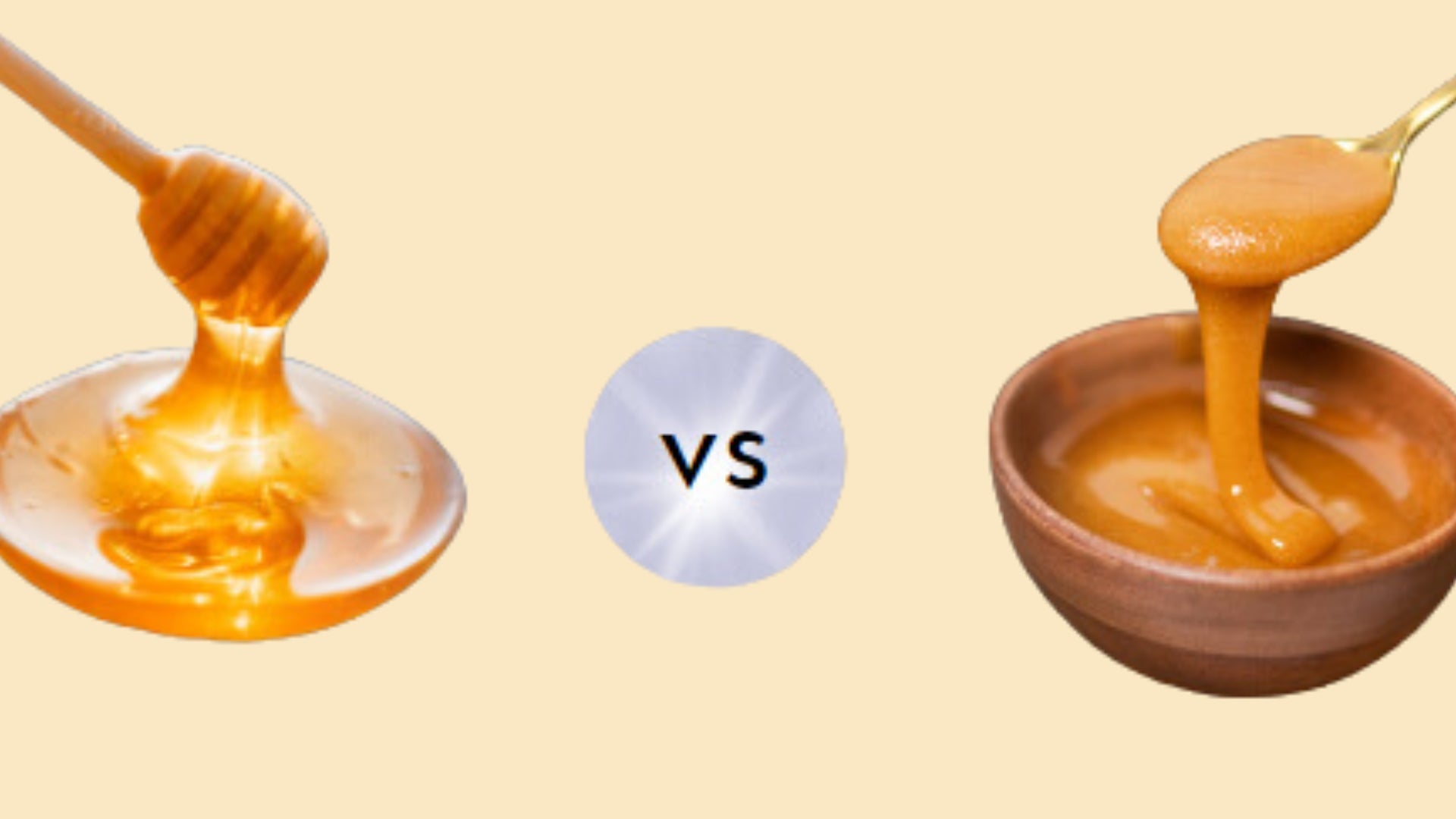

Renowned for its distinctive characteristics, manuka honey stands out from regular honey with its unique properties. Harvested from the nectar of the manuka bush, this honey has gained attention worldwide for its potent compositional elements.
Manuka honey has become popular in people's diet, including meals. Furthermore, when it comes to alleviating a cough, honey has been a 'go-to' remedy for generations. However, not all honey is created equal. Originating exclusively from New Zealand, manuka honey is known for its unique properties.
What truly sets manuka honey apart from regular honey, and how do these differences influence their effectiveness in treating a cough? We delve further into detail, comparing manuka honey versus regular honey.
Honey in Traditional Remedies
In addition to being a super food, with it's unique taste, the use of a honey product as a healing agent for different conditions, such as a cough, stretches back thousands of years, crossing various cultures and civilisations. Its therapeutic properties have been heralded in ancient texts and folklore, often being one of the go-to remedies for treating symptoms related to colds and coughs.
Historical records from the Egyptians, Greeks, and Romans describe honey as a common solution for a wide array of ailments. With its soothing texture and natural sweetness, honey has been traditionally used to calm coughs and reduce throat irritation.
The Antibacterial Properties of Honey
The medicinal use of honey, especially in treating a symptom, such as coughs, is as much about tradition as it is about science. At the heart of its effectiveness is an impressive range of antibacterial agents. When it comes to fighting off bacteria, not all honey is created equal.
Honey's Natural Antibacterial Agents
Honey's ability to act against bacteria stems from its unique composition. It is a rich, viscous fluid created by bees from plant nectar. The process of making honey enhances it with several properties that bacteria find inhospitable. These include low water activity and a low pH, both of which can inhibit bacterial growth.
- Low pH: The acidic environment in honey hampers bacterial growth.
- Osmotic Effect: Honey's high sugar content means that it tends to draw water out of bacterial cells, dehydrating and killing them.
- Bioactive Compounds: Manuka honey is particularly rich in compounds that are highly antibacterial.
The Role of Hydrogen Peroxide in Regular Honey
One key component that affords regular honey its antibacterial quality is hydrogen peroxide. This substance is produced when the enzyme glucose oxidase, added by bees to the nectar, breaks down glucose. While it's widely known for its use in disinfectant products, its presence in honey is much lower, yet still effective in concentrations. In regular honey, this is one of the primary germ-fighting compounds.
NPA, MGO and Other Unique Compounds in Manuka Honey
NPA (Non-Peroxide Activity) is a significant factor contributing to the unique therapeutic properties of manuka honey. Unlike traditional honey, which derives its antibacterial effects mainly from hydrogen peroxide, manuka honey contains additional compounds that enhance its potency. NPA specifically refers to the presence of compounds like Methylglyoxal (MGO) and other bioactive substances, which provide manuka honey with its renowned antibacterial activity. These compounds are naturally occurring in the nectar of the manuka bush and are concentrated during the honey-making process. NPA ratings indicate the level of non-peroxide antibacterial activity present in manuka honey, with higher ratings corresponding to greater potency. This grading system allows consumers to make informed choices when selecting manuka honey for its therapeutic benefits.
While both regular and manuka honey possess antibacterial qualities, the unique composition of manuka honey may offer enhanced benefits for those seeking natural cough remedies. Understanding these properties helps in selecting the right type of honey for specific needs.
Comparing the Antioxidant Levels of Manuka Honey and Regular Honey
When it comes to combatting respiratory issues with natural remedies, the antioxidant levels of honey play a crucial role. Antioxidants are known for their ability to reduce oxidative stress in the body, which in turn can aid in the relief of inflammation and the strengthening of the immune system. In this section, we'll delve into the different antioxidant profiles of manuka honey and regular honey.
The Antioxidant Profile of Manuka Honey
Manuka honey stands out due to its robust antioxidant profile. It contains unique phenolic compounds such as methylglyoxal (MGO), which not only contribute to its antibacterial potency but also offer a higher level of antioxidants compared to regular honey. This is attributed to the distinctive nectar derived from the manuka bush.
How Antioxidants in Honey Can Aid Respiratory Health
The presence of antioxidants in honey can help in relieving respiratory symptoms. Antioxidants in honey, including flavonoids and phenolic acids, may reduce inflammation in the throat and airways, thus easing coughs and improving overall respiratory health. Regular honey, while also containing these beneficial antioxidants, generally has them in lower concentrations compared to manuka honey.
- Flavonoids: Known for their anti-inflammatory properties, they can help in soothing irritated throat tissues.
- Phenolic Acids: Possessing not only antioxidant but also anti-inflammatory effects, which may be beneficial in reducing cough intensity.
Whilst both types of honey offer these health-benefiting compounds, the higher antioxidant concentration in manuka honey may provide a more potent natural remedy for those suffering from coughs. The choice between manuka honey vs. regular honey may, therefore, come down to the desired strength of the remedy and more.
The Role of Honey in Soothing Sore Throats
Used for generations as a natural remedy for a variety of ailments, which may include allergies, gut / stomach problems, wound healing, and general wellbeing, manuka honey remains a 'go-to' in the treatment of sore throats. Its thick consistency provides a protective coating that can calm the delicate lining of an irritated throat, while its antimicrobial properties offer added benefits in the healing process.
How Honey Can Be a Natural Coat and Soothe the Throat Lining
One of honey's most pronounced benefits is its role as a natural demulcent. Upon consumption, honey adheres to the mucous membrane in the throat, creating a moist protective layer that can shield nerve endings which can trigger coughing. This natural barrier not only diminishes the urge to cough but also can aid in the swift recovery of the affected area, promoting overall throat health.
- Natural antibacterial properties: Honey contains compounds that can be effective in killing or inhibiting the growth of bacteria often associated with throat infections.
- Non-irritating: Honey can provide gentle relief without causing further irritation to a sore throat.
- Hydration aid: The viscosity of honey can help in maintaining throat hydration, which is vital for healing and comfort.
The Importance of Honey Source and Quality
When considering honey for its therapeutic benefits, particularly in treating coughs, it is crucial to understand that not all honey is created equal. The source and quality of the honey play instrumental roles in its overall efficacy. Manuka honey, which originates from the nectar of the manuka bush native to New Zealand, contains unique compounds that contribute to its potent health benefits.
Always Look for Genuine Manuka Honey Products
Ensure that manuka honey originates from New Zealand and inspect the packaging for high-quality, tamper-evident seals. The label on the packaging should offer clear details regarding MGO ratings, origin, and additional information. It is advisable to purchase from reputable retailers.
Final Thoughts
Honey, a traditional remedy, is prized for its soothing properties. Manuka honey, sourced from the manuka bush, offers potent antibacterial efficacy. Its rich composition includes phenolic compounds, which can sooth coughs and throat irritations. Compared to regular honey, manuka honey's enhanced potency stems from its low pH, osmotic effect, and compounds. With antioxidant-rich properties, manuka honey can often effectively soothe sore throats. Authenticity is crucial, especially with manuka honey from New Zealand.
About Manuka Lab
Manuka Lab are leading expert suppliers of high-quality manuka honey in the UK. Our genuine New Zealand manuka honey is sustainably harvested from New Zealand's indigenous 'Super Plant' - this is grown in the remotest areas of the East Cape region, ensuring quality, potency, and origin.
See the full range of manuka honey products on our website. Alternatively, email us at wecare@manukalab.co.uk should you have any questions or require further information regarding our manuka honey products.
Embrace the Natural Elixir - Incorporate manuka honey into Your Lifestyle.
* It is always recommended to consult with a healthcare provider before using honey or any natural remedy as a treatment, particularly if you have underlying health conditions or are on medication.



